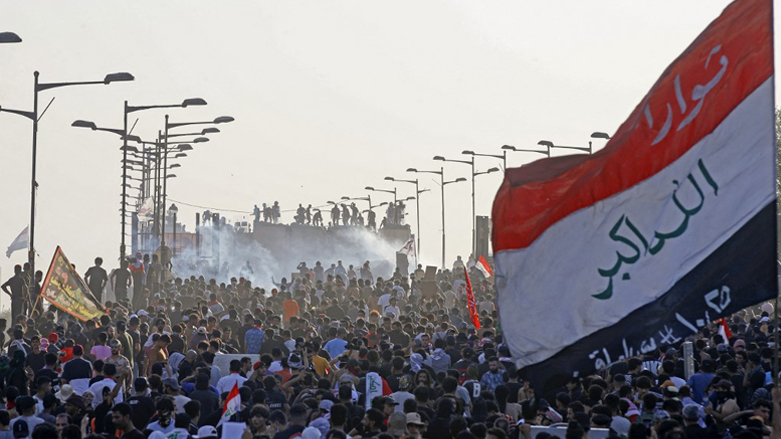Iraq’s lingering political crisis ‘breeding further stability’, UNAMI warns on election anniversary
Several initiatives and rounds of dialogues held during the past year have been fruitless, as conflicting parties are not ready to compromise.

ERBIL (Kurdistan 24) – The ongoing political gridlock in Iraq is breeding further instability, as has been proved by the recent clashes in the country, a United Nations statement said on Monday in a statement marking the one-year anniversary of parliamentary elections.
Iraqis on Oct. 10, 2021, cast their votes to elect a new government and parliament following a series of bloody demonstrations over the lack of employment, corruption, and foreign hegemony. But the political class has since failed to form a new governing cabinet over deep disagreements.
Several initiatives and rounds of dialogues held during the past year have been fruitless, as conflicting parties are not ready to compromise.
“The protracted crisis is breeding further instability, and recent events are a testament to that,” the United Nations Assistance Mission for Iraq (UNAMI) said in a statement, adding the country is “running out of time.”
UNAMI Press Release:
— UNAMI (@UNIraq) October 10, 2022
A year after hard-earned elections: the time to act is now#Iraq pic.twitter.com/l2RXNr9mwJ
Iraq in August witnessed a brief but deadly period of instability erupted between followers of powerful Shiite cleric Moqtada Al-Sadr and their Iran-backed rivals, resulting in dozens of deaths. The street fights were a consequence of the months-long protracted political crisis, experts and politicians warned.
‘Hard-earned election’
The United Nations described the country’s Oct. election 10 as a “hard-earned”, which was conducted under a new electoral law to which the international organization provided technical support.
However, the international monitoring bodies largely hailed the electoral process and its results as a success, the Shiite Coordination Framework, whose party members' seats were significantly slashed, did not accept the outcome immediately, citing “irregularities”.
Unlike previous Iraqi elections, new independent members of parliament emerged victorious in the latest round of polls. A larger representation of women was also secured, thanks to the new electoral law.
The French Embassy in Baghdad threw its support behind the UNAMI statement, urging the Iraqi political parties to “invest in an actual dialogue without preconditions.”
Iraq’s Prime Minister Mustafa Al-Kadhimi similarly called for holding a “constructive dialogue” to resolve the outstanding issues, according to a statement his office issued on the anniversary of the election.
— Mustafa Al-Kadhimi مصطفى الكاظمي (@MAKadhimi) October 10, 2022
“It is a bitter reminder of the missed opportunities for our country,” Iraqi President Barham Salih said in a tweet, calling for an end to the crisis and establishing good governance.
The inability to overcome the political deadlock has made a number of Iraqi parties to call for fresh elections.